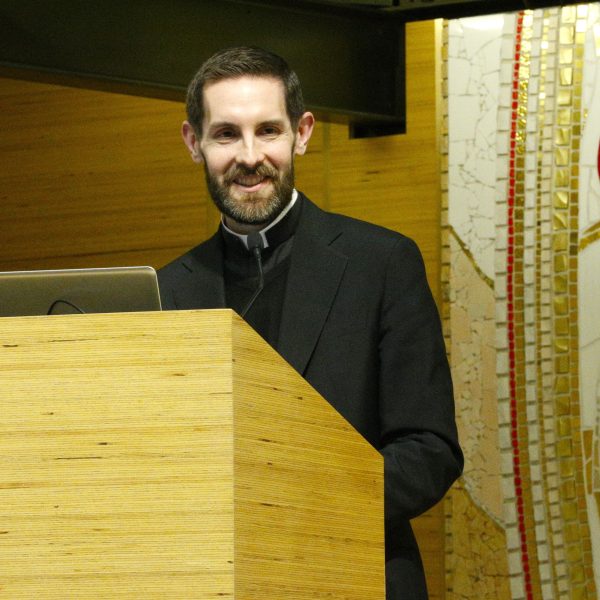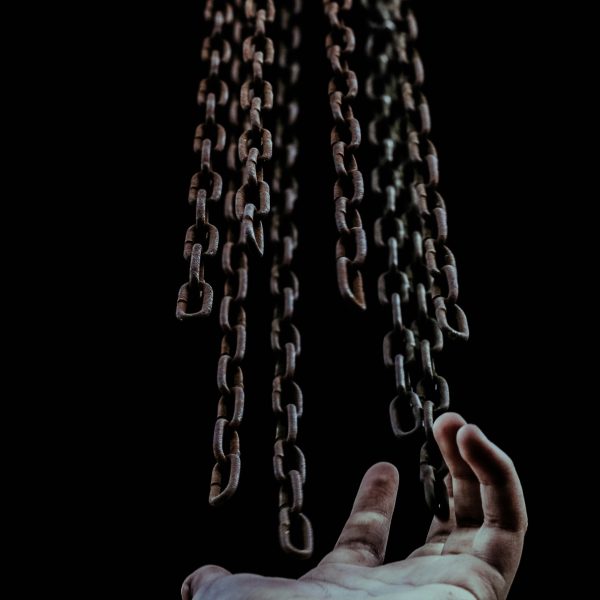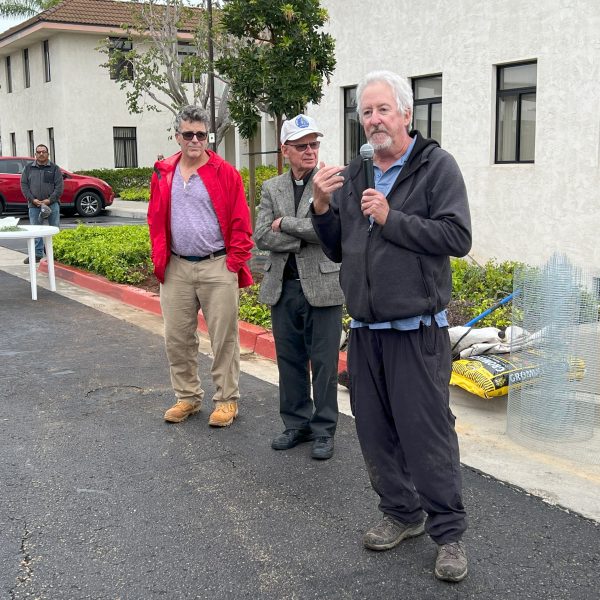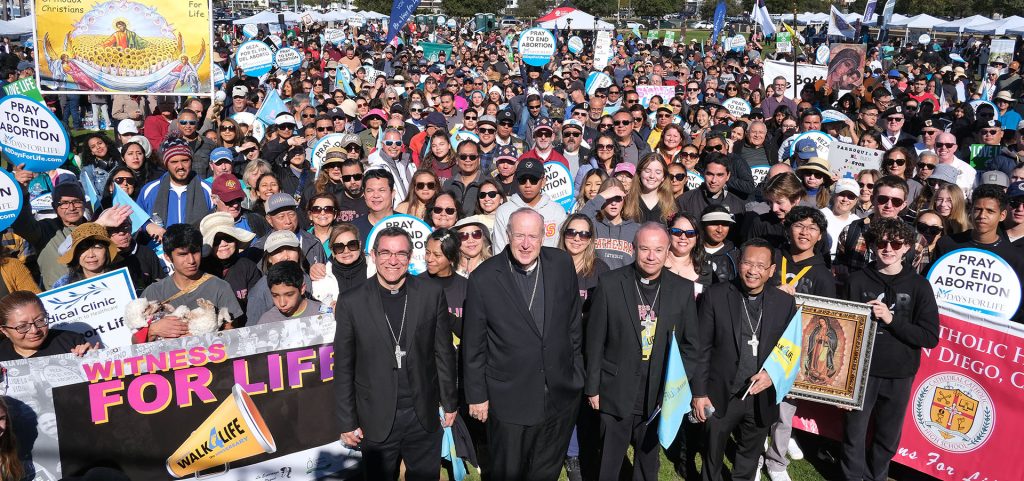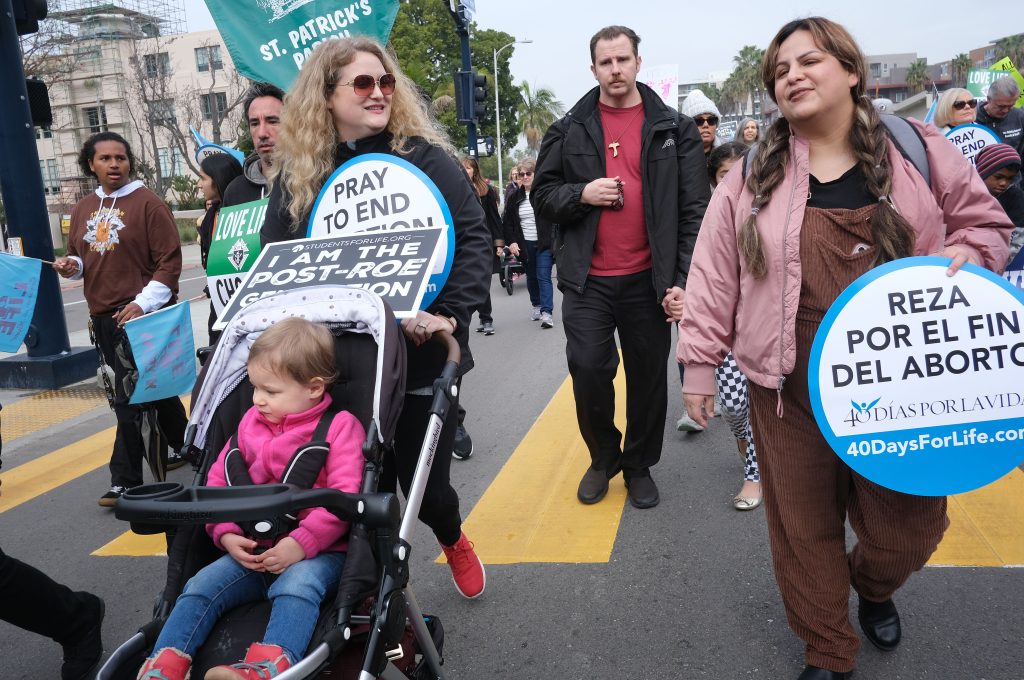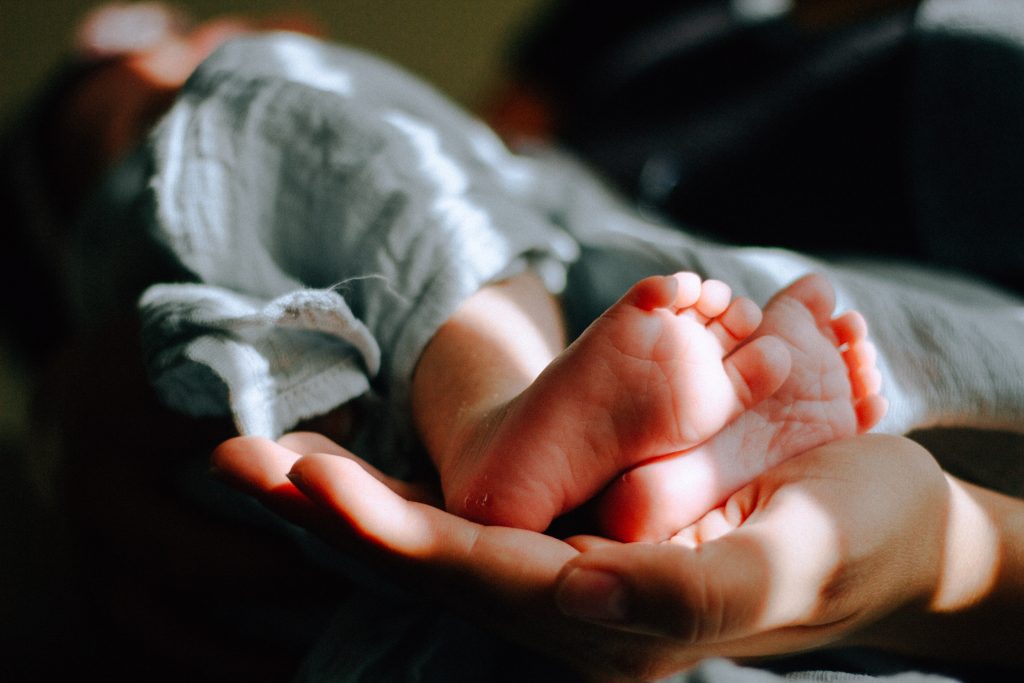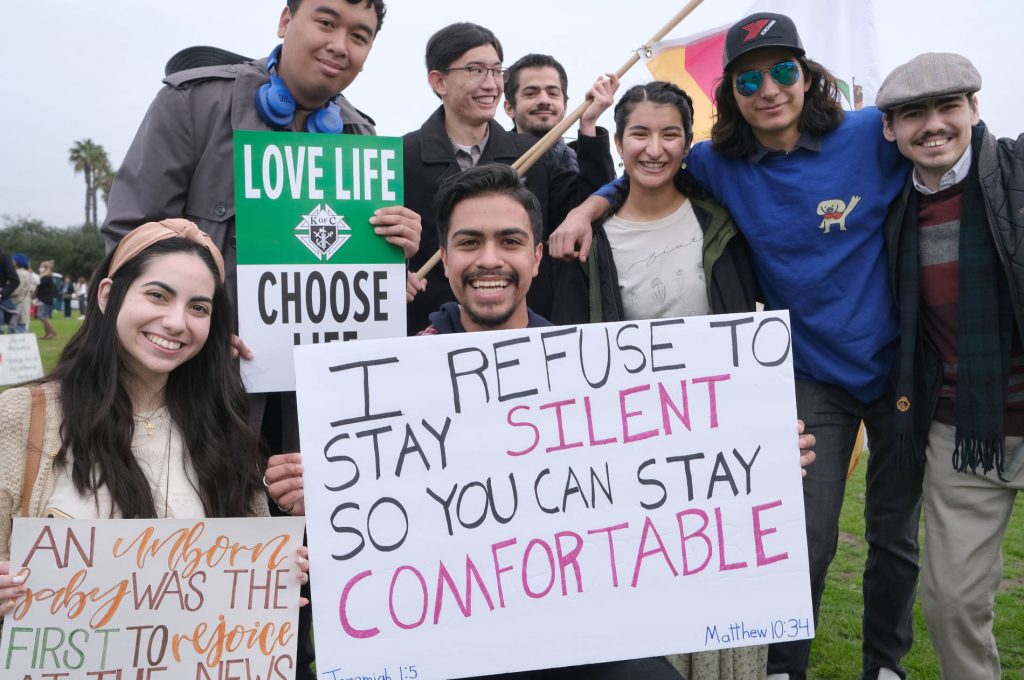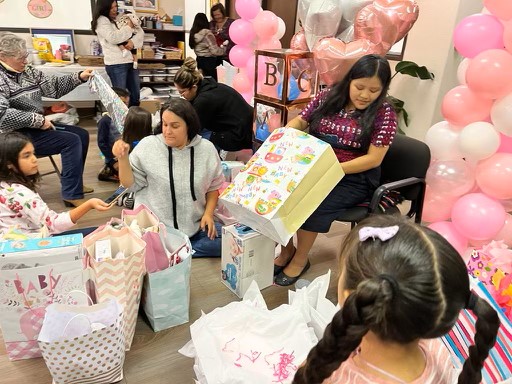SAN DIEGO — For more than 16 years, Lulú Valdivia has worked tirelessly in support of the pro-life cause.
Valdivia, who directs the post-abortion healing ministry Rachel’s Hope (Esperanza de Raquel) in Spanish, said she might receive as many as 10 phone calls a month from women who are trying to convince a family member or friend not to go through with an abortion.
Though she doesn’t keep a record, she can think of at least 15 to 20 unborn babies whose lives were saved and whose mothers were spared from a potential lifetime of grief and regret through her intervention.
The Catholic Church in California recently launched the “We Were Born Ready” campaign, which seeks to raise awareness of the many resources available to women, children and families in the state and encourages Catholics to step up their support for them. Valdivia and those who collaborate with her are emblematic of the campaign’s core message — that faithful, caring individuals can act to save a life.
One particularly dramatic account of Valdivia’s work comes from last November.
Valdivia was at the diocesan Pastoral Center when she received a message via Facebook from a frantic mother, whose 16-year-old daughter had taken the first dose of the abortion pill. The mother pleaded with Valdivia to come to her home and convince her daughter to keep the baby.
For support, Valdivia reached out to her friend Jasmine (who asked that her last name not be used to maintain her privacy), a fellow pro-life advocate who prepares baskets of baby items for mothers in crisis pregnancies, and also enlisted the help of Gabriela Garcia, a St. Didacus parishioner who only about a week earlier had publicly shared her own past experience of unplanned pregnancy.
Until that day, Valdivia and Garcia had never met.
Valdivia was the first to arrive at the girl’s home. The girl, whose name is Miriam, had locked herself in her bedroom and was not only unwilling to speak with Valdivia, but angrily demanded that she leave. Joining the girl’s mother and grandmother, praying the rosary on their knees, Valdivia waited for Jasmine and Garcia to arrive.
“At the beginning, I was scared because I didn’t know what to do,” recalled Garcia. “(Miriam) was being aggressive. She was cursing at us. … I was feeling scared for myself, but at the same time, I was praying to God that He was the one who (would be) talking to her, not me.”
Garcia was able to convince the girl to open the door and let her in for a face-to-face conversation. Her youthful appearance and background – Garcia is 28 and had become pregnant for the first time as a 16-year-old – may have given her credibility in the girl’s eyes.
While the two young women spoke, the others continued to pray.
“I see (Garcia) as my baby’s angel because, if it wasn’t for her, I wouldn’t have done it,” Miriam said in recent days of her decision to keep her baby.
“I’m very thankful because (the baby is) the best thing I’ve ever had,” she added.
But the decision not to abort her child was complicated by the fact that she had already taken the first dose of the abortion pill. Though Dr. George Delgado, medical director of Culture of Life Family Services (COLFS), had pioneered an abortion pill reversal protocol, the clock was ticking.
Jasmine took the initiative to get the girl and her mother from their home in central San Diego to COLFS’ medical office in Escondido. However, it was rush hour and they had to take a cab because Jasmine did not have a car to use that day.
These weren’t even the last challenges they faced.
After getting a prescription from COLFS for the reversal regimen, the first pharmacy they went to was closed, recalled Jasmine, who credits God with saving the baby’s life.
“I said, ‘God, I need Your help with this. This is impossible by human standards.’ … And the Lord absolutely made it possible. He is the reason this child is here,” said Jasmine, who continued to provide the girl with transportation for follow-up visits to COLFS throughout her first trimester.
Garcia echoed those sentiments.
“I know it was not me. … I know it was God that helped us out,” she said.
Garcia kept in touch with Miriam during the pregnancy. She said that, upon returning from COLFS, Miriam threw away the drug paraphernalia that she had in her room; the girl also distanced herself from friends who were involved in gangs and is currently enrolled in sacramental preparation classes for confirmation.
Miriam remembers hearing her mother making a series of phone calls that afternoon, desperately seeking someone to help prevent the abortion.
“And then, it goes quiet. It goes really quiet. And I was like, okay … she didn’t find anybody to help her. I don’t think anybody really wants to interfere in something like this,” she recalled.
But, as the events of that day later proved, she was mistaken.
For Valdivia, this ministry is personal. She faced a pregnancy crisis when she was 21 years old and a man who had abused her took her to a clinic to have an abortion.
She said that Miriam’s story underscores that there is help available for women and families facing crisis pregnancies, especially through the Catholic Church and its members.
She said the Church is “like a mother” and is there for those who need “the embracing and loving of a mother.”
Valdivia said that everyone who finds themselves in a position to encourage a pregnant woman to choose life over abortion should recognize that they have received “a blessing.”
“God has opened the heavens for you, and the Holy Spirit is going to give you the exact words that you need,” she said, adding that the Holy Spirit is “the one that’s going to do the job; we’re just the instruments.”
It’s important to demonstrate sensitivity and compassion, and sometimes to be silent.
Valdivia says “to look (the person) in the eyes,” remind her that God has not forgotten about her in this difficult moment, and that it is “not a coincidence” that someone is there talking to her about choosing life for her child.
Garcia emphasized that women in crisis pregnancies have many resources available to them and, despite how it might seem, they are not alone. She noted how powerful it can be to see an ultrasound of one’s baby, hear its heartbeat, and find out how far along it is in its development; with that experience, she said, “everything changes” for the mother who had been considering abortion.
While some believe that a crisis pregnancy will ruin a young girl’s life, Garcia suggested that the unexpected child is sometimes conceived at a time when the girl’s life is already in shambles and the child can be the “miracle” that leads to a fresh perspective and a new way of life.
Garcia shared the message she has given to her oldest daughter, who is now 12.
“I tell her, ‘You changed my life, but it was not a bad thing.’”
Pregnancy resources are available at sdcatholic.org/chooselife. For information, contact Maria Valencia, (858) 490-8323 or mvalencia@sdcatholic.org, in the Office for Life, Peace and Justice.

